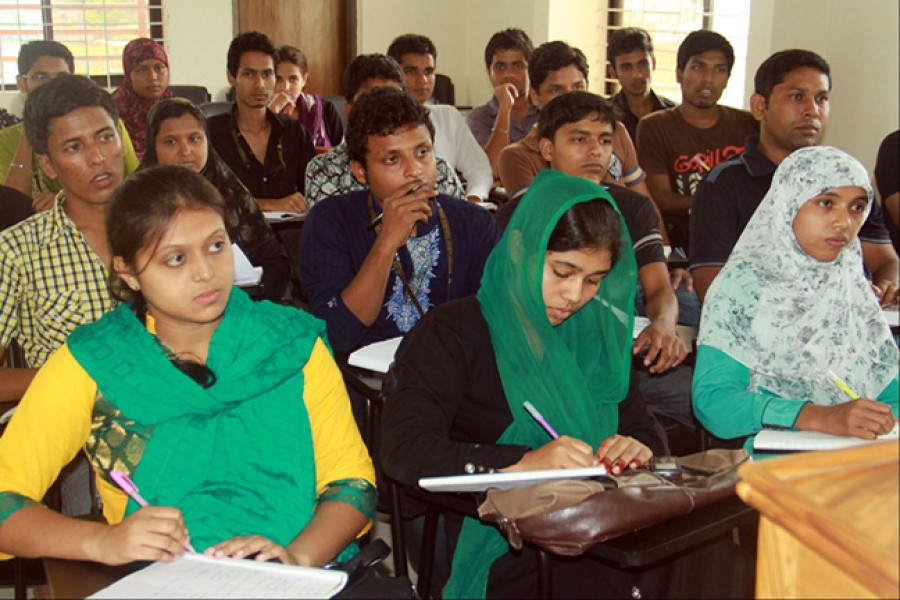
Published :
Updated :

A rickshaw-puller draws to a halt at a road crossing. On the opposite side of the road a Dhaka University bus also stops right at that moment. A girl student alights from the bus and suddenly the puller's eyes light up. With a beaming face, he turns towards his passenger to tell it was his daughter. A highly pleased but not at all arrogant father then narrated the girl's social transition. She studies in BA (Hons), 2nd year in the Department of Philosophy at the University of Dhaka.
Already married, the girl is lucky to continue her studies. Her husband works for a buying house on completion of his university education. So he seems to be backing her to complete her education. What is particularly satisfying is that the family of her husband has not taken exception to her pursuing higher education.
Contrary to the usual tragic stories involving girls and women in this country, here is an off-beat development that definitely presents a positive face of Bangladesh. If burning or mutilation of brides for dowry causes many hearts to bleed, this rickshaw-puller father and his university-studying daughter's journey on the social highway will provide a healing touch.
By no means, however, is this a one-off success story for a family finding itself at the bottom of society? A few years back another rickshaw had a board like a placard placed behind it, on which was inscribed in bold letters: "My daughter has got admission to a medical college. Please help her purchase a skeleton". The rickshaw used to move about in Mohammadpur area.
There is a reason to believe that students from marginal families are coming out, albeit in negligible numbers, against overwhelming odds to claim their place in society where they were considered intruders who have trespassed unannounced. Every year, after the publication of secondary and higher secondary examination results, newspapers regularly carry stories on students who overcame extreme poverty and severe limitations to achieve the highest grade. Quite a few of those do well in medical college or university admission tests but see no hope of managing the admission fees. In all such stories they treasure a dream of their own but are doubtful if they would be able to pursue higher studies for want of money even if they somehow manage the admission fees. At times some generous people come in support of them and their dreams come true.
What happens to these especial type of meritorious students later is not known in majority cases. Only those who are supported by a few organisations can be traced until they manage an employment. But not all are likely to be equally lucky in this competitive job market. The hard truth is that girls stand a better chance of moving up the social ladder when married in a well-to-do family. Her parents or siblings stay where they were. In case a boy from a marginal family builds a well-paid career, there is a better chance of the entire family coming out of the poverty trap.
Why not make an especial educational fund for helping meritorious students on achieving the highest grades in secondary and higher secondary examinations? They have proved their talents and it is the state that should take responsibility of their higher studies. Instead of depending on charity or the generosity of a few benevolent people, let it be an institutional arrangement where such students will be taken well care of in order for them to pursue a decent career and lead a better life.


 For all latest news, follow The Financial Express Google News channel.
For all latest news, follow The Financial Express Google News channel.